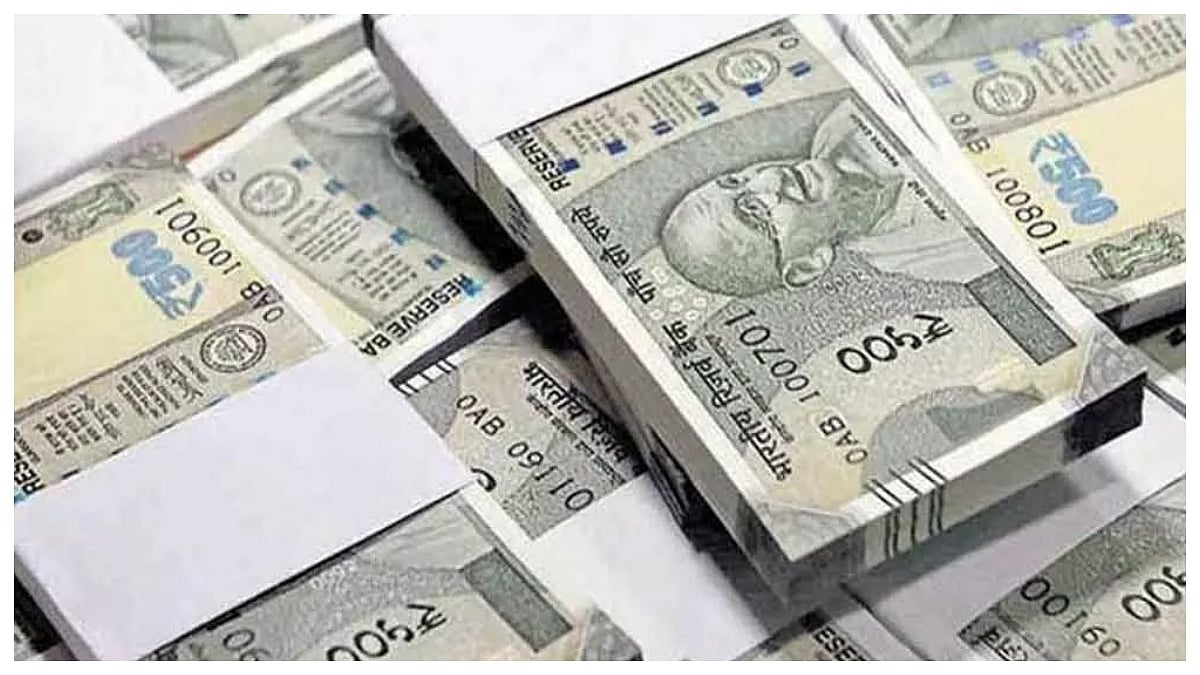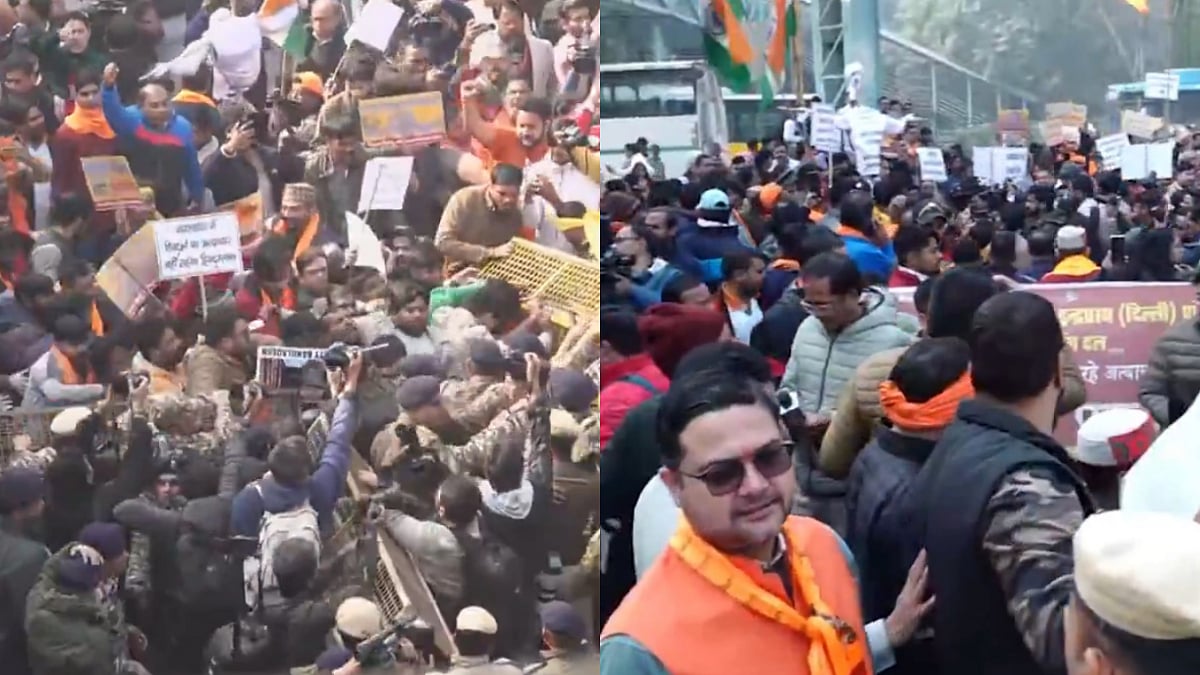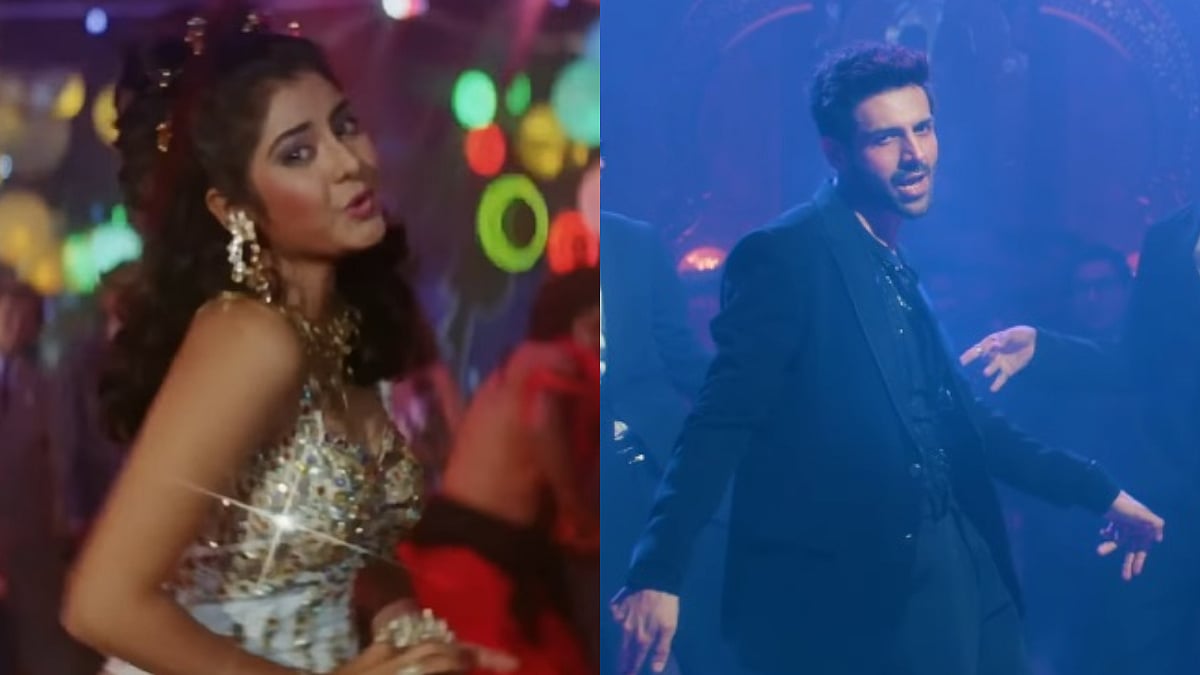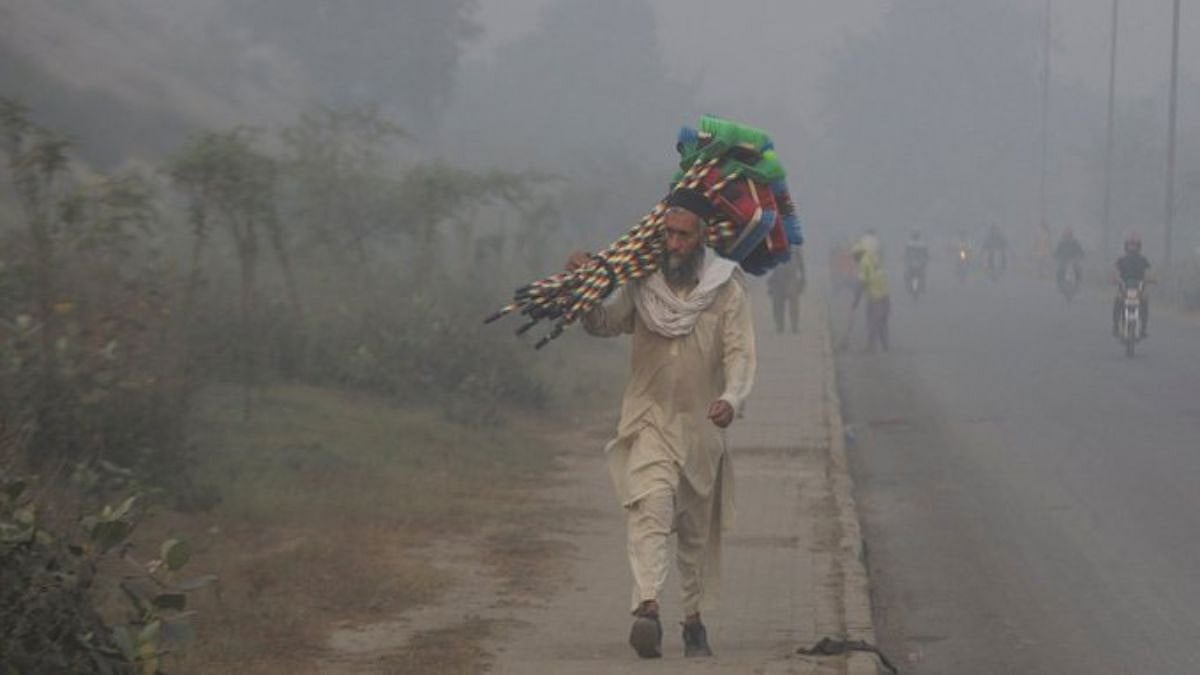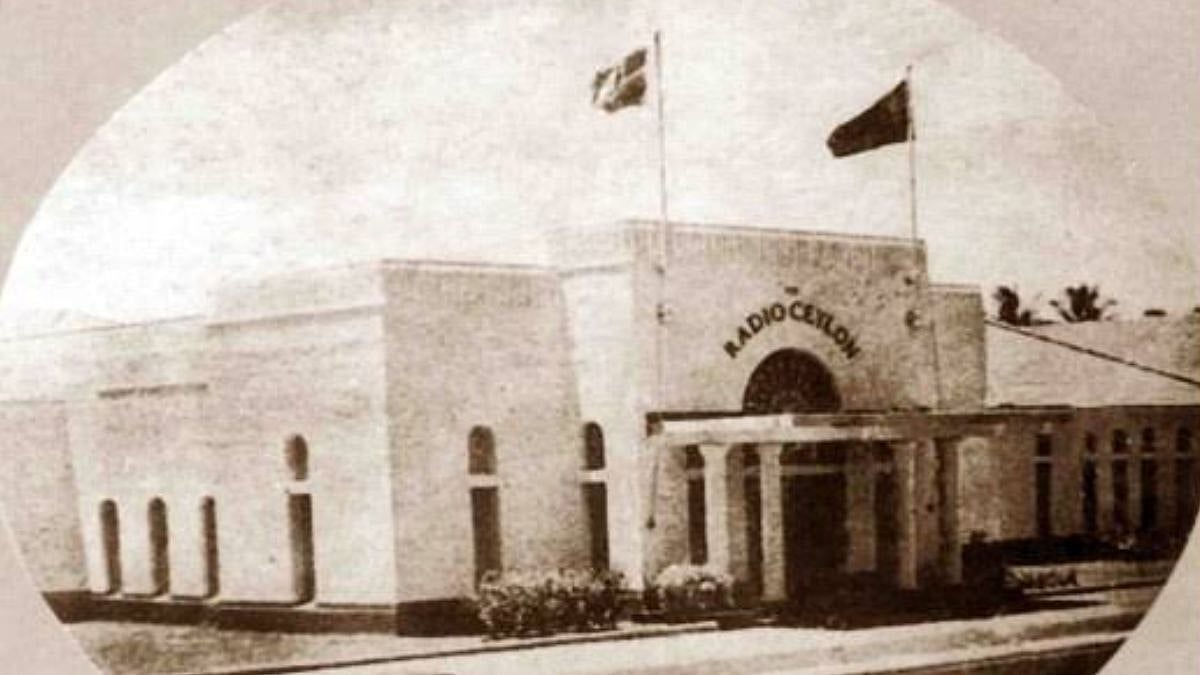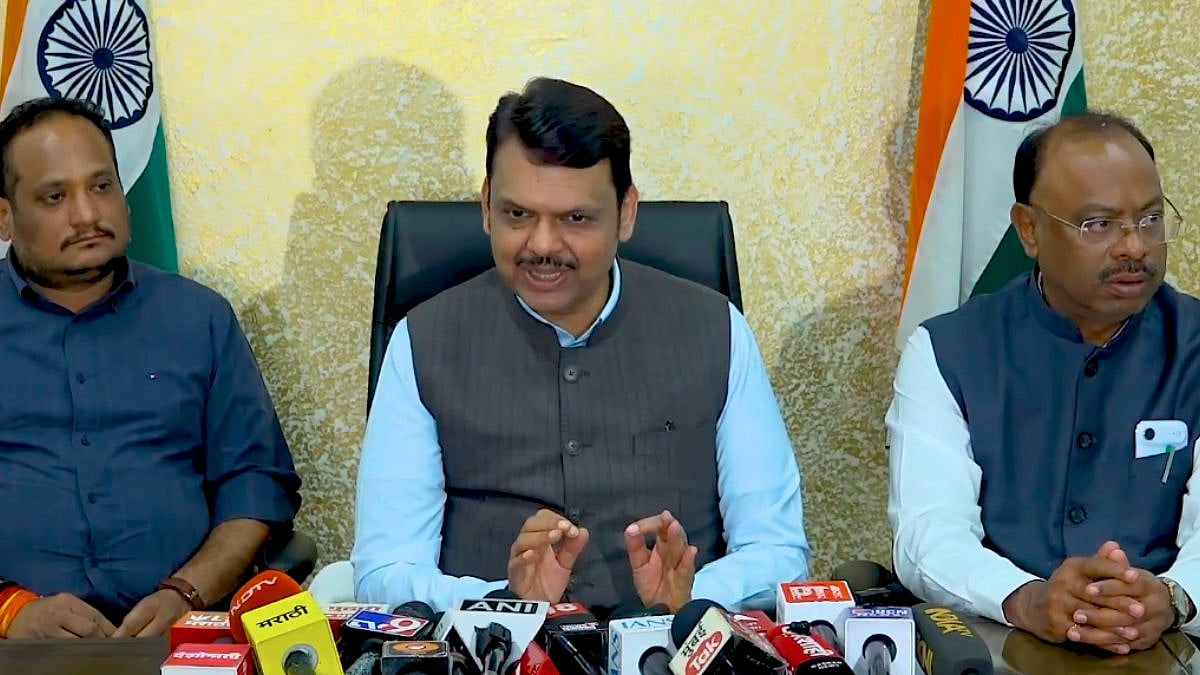It is Pride Month, and one of the main reasons to think of the great Marathi playwright, Vijay Tendulkar, who wrote Mitrachi Gosht, a play based on lesbian love, in 1980.
Mitrachi Gosht was translated years later as A Friend’s Story. The translation missed out the play of words in the title. It was the story of Mitra; the leading lady’s name is Mitra, which can be translated as ‘friend’ if we look at it as a common noun. Directed by Vinay Apte, the main characters were played by Rohini Hattangadi, Mangesh Kulkarni, Satish Pulekar and Ujjwala Jog.
The play’s timeline was pre-Independence. It revolved around three main characters – Sumitra (Mitra), Bapu and Nama. While Nama, the romantic interest of Mitra, responds to Mitra, she also has a boyfriend. Mitra and Bapu are in search of their own identity for different reasons and emotionally dependent on each other. The complex relationship and open talk of Mitra’s queer sexuality ensured that the play was declared controversial. Homosexuality was taboo in the ’80s era. It’s interesting to note that while talking about homosexuality, Tendulkar chose a woman to make the point and not a man.
Even today, despite an active LGBTQ+ community, acceptance of queer people is low. However, festivals like Kashish give a platform to works that talk about the community.
Tendulkar, ‘तें’ to his friends and loved ones because he signed his letters so, must have been a curious cat by birth. He is known to have written, directed and acted in a play at the age of 11. Not many are aware that Tendulkar had also acted in a play by the famous playwright, editor, and social commentator P K Atre, known popularly as Acharya Atre after he came to Mumbai and worked in Atre’s newspaper as journalist.
His curiosity, probably, guided him to be a journalist in his early days. It also could be a continuous urge to make a difference to the socio-political fabric of society that led him to be a journalist while on a quest of self-discovery.
While he had begun writing plays while in Pune, his true claim to fame was Shrimant (1956) after he came to Mumbai and met like-minded people. Shrimant spoke about pre-marital sex and child before and without marriage too early for its time. That was, perhaps, the beginning of a series of plays that not just questioned the status of social rules, but also managed to rupture a lot of masks that society wore under the pretext of morals.
Tendulkar’s plays and their leads may have appeared to be raw to the eye. And, honestly speaking, barring a few exceptions, most plays had atavistic characters with a minimal level of sophistication in behaviour and language. He scratched the surface of the character’s visor before shaping it and writing the dialogues. The crude reality then showed up to shatter your biases or jolt you out of your comfort zone while you saw or read the play.
An intriguing fact remains that except in Sakharam Binder and Baby, the families on the stage were upper castes of society — be it the journalist in Kamla or Nana Phadanvis of Ghashiram Kotwal or professor in Pahije Jatiche or the entire family of Gidhade. Tendulkar was openly diagnostic about the duplicity of the upper caste or the middle-class.
Gidhade, first staged in May 1970, was especially lurid when it came to language. It was appalling for the pseudo-moralistic members of society to even imagine an upper caste family using such a language. The team of Gidhade, led by Dr Shreeram Lagoo, had gone a step further and performed the original script without incorporating the cuts suggested by the Censor Board. One more reason for the controversy that followed.
One of the most talked about plays, Shantata! Court Chalu Aahe (1967), talked about extra-marital sex; the woman’s decision to keep the child and her demand to be treated with respect challenged society’s moral certitude. The language was lucid, day-to-day, but the plot, its presentation was implausible for those times.
Ghashiram Kotwal too had chaste Marathi since the main characters were Puneri. Nana Phadanvis, shown as a womaniser, was the right-hand man of the Peshwas. The play was a direct attack on the establishment and upper caste. Not a surprise that despite being a fantastic production, the play ran into trouble.
Most plays of Tendulkar ran into controversies – for the presentation, for narration or for the content. Was it intentional?
Bhalchandra Pendharkar, veteran theatre personality, had once said, “While initially his plays were wake up calls for the society, later, according to me, it sometimes appeared to be intentional – the crudity and shock effect.”
This said, one of the most successful plays of Tendulkar, Ashi Paakhre Yeti (1970), was a romantic play with breezy dialogues inspired by Rainmaker the 1956 film.
Sari Ga Sari was another surprise from Tendulkar’s pen — a tamasha kind of a play that was a superb political satire with lighter accents.
Tendulkar’s passion for sardonic social drama is reflected in his films too. Be it Ardh Satya, Aakrosh or Nishant, all were scathing comments on the structure of the milieus. Though he acknowledged he was inspired by playwrights like Arthur Miller or JB Priestley, he confessed that it was real experiences which prodded him to pen his basic urge to voice his concerns about his surroundings and the way he perceived them.
I guess it was this yearning that helped him create literature, drama and films with a message that’s relevant even today.
Shruti Pandit is Consulting Editor, Features, The Free Press Journal

